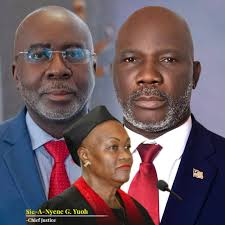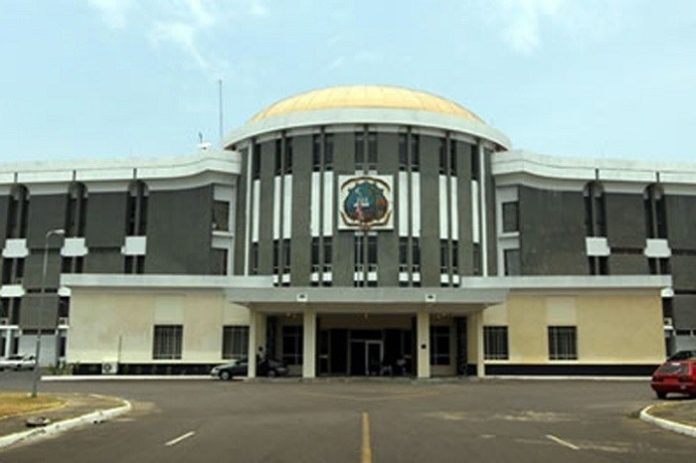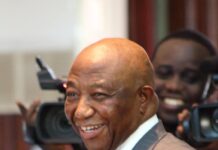By Hun-Bu Tulay Cell# +231-777-111-032/886-517-356
Before we delve deeply into our discussion, let us first provide you with a foundational definition of history. This will enhance your comprehension of the quote.
Core definition of history
History is the systematic study and documentation of human activities across time, encompassing cultural achievements, technological innovations, linguistic evolution, societal challenges, and intellectual advancements.
At its core, history serves as a collective memory, preserving not only the triumphs of civilizations such as artistic movements, scientific breakthroughs, and political reforms but also the struggles they endured, including wars, inequalities, and environmental crises.
By examining how past societies navigated obstacles, history provides invaluable insights into problem-solving, resilience, and adaptation. For instance, analyzing responses to pandemics, economic collapses, or social upheavals equips modern societies with frameworks to address similar challenges today.
The importance of studying history lies in its ability to foster critical thinking, contextual awareness, and informed decision-making. It reveals patterns in human behavior, highlights the consequences of actions, and underscores the interconnectedness of global communities. Moreover, history cultivates empathy by exposing learners to diverse perspectives and experiences, bridging gaps between cultures and generations.
Those who engage in history gain not only a deeper understanding of humanity’s shared journey but also the analytical tools to anticipate future challenges, mitigate risks, and innovate solutions. In this way, history is not merely a record of the past but a vital guide for shaping a more informed and equitable future.
Importance of Studying History: It empowers individuals to learn from collective mistakes, appreciate cultural heritage, and develop strategic foresight, ultimately enabling progress through informed, evidence-based action.
The Perils of Ignoring History’s Lessons”
Philosopher George Santayana once warned, “Those who cannot remember the past are condemned to repeat it.” This adage, though timeless, carries a haunting resonance for Liberia, a nation whose recent history is marred by cycles of conflict, governance failures, and unlearned lessons.
The Civil Society and Historians have long emphasized the imperative of historical literacy to inform policy making, Past and present administrations appear trapped in a disheartening pattern: repeating the very missteps that precipitated centuries of turmoil. As the nation grapples with escalating economic instability, political polarization, and social fragmentation, the specter of dark days looms ever closer.
A Legacy of Unheeded Warnings
Liberia’s tragic civil wars (1989–2003), which claimed over 250,000 lives and displaced nearly a third of its population, were rooted in systemic inequities, corruption, and Enforcement of the constitution and the laws by the political actors even though before taking their offices, they took a solemn oath or affirmation to preserve, protect, and defend the constitution and the laws of the Republic and with faithfully execute the duties of their offices. One of the president’s primary responsibilities is to enforce court rulings. Failure to uphold these decisions undermines the rule of law, rendering it as ineffective as if no laws exist at all.

As the philosopher Aristotle observed, “Man is by nature an excellent animal, but in the absence of laws, he becomes the worst of animals.” We saw this during our war years and continue to see this even now. If the president neglects their duty to enforce judicial rulings, the stability of the state will collapse, leading to chaos and disorder. And we are already seeing this in the House’s crisis. We can recall that when the Minister of Justice gave his interpretation of the Supreme Court Ruling, the Executive was fast in enforcing the Justice Minister interpretation. We at the time did not agree with his interpretation on two grounds.
- The Minister of Justice does not interpret the ruling of the courts. He advises the president and other branches of the government.
- The fact that the Minister of Justice was a member of the delegation that engaged in the Minority Block appealing to Koffa to resign in accordance with Rep. Bility makes him not suited to giving unbiased advice.
License REP. 1 was redrawn from Rep. Koffa. Unfortunately, Rep. Koon continues to use the plate on his vehicle. This is clear indication that the Executive does not honor the Supreme Court Ruling. This violates the oath of office of the President, who is the Chief Law enforcer of the country.
We are equally concerned about the Non-Compliance with Judicial Authority and Pending Motions
To the Honorable Justices of the Supreme Court, we say the following:
- Executive Noncompliance with Judicial Authority
The continued use of legislative license plate REP. 1 by Representative Koon, despite its formal revocation by Representative Koffa pursuant to this Court’s ruling, raises grave concerns under Article III of the Constitution and the principle of judicial supremacy. The Executive Branch, as the chief enforcer of the law, bears a non-discretionary duty to uphold judicial decisions under the Liberian Constitution. Failure to enforce the Court’s order constitutes contempt of court and a violation of the President’s oath to “faithfully execute the laws”. Such defiance undermines the rule of law and risks normalizing a culture of selective compliance with judicial authority.
Legislative Attacks on Judicial Independence
The public rejection of the Supreme Court’s ruling by some members of the legislative Majority Block, particularly that block speaker, including threats to impeach Justices who joined the majority opinion, contravenes the separation of powers doctrine enshrined in Chapter 1, Article 3 of the Constitution of Liberia.
It must be understood that the impeachment is a political remedy reserved for “high crimes and misdemeanors,” not a tool to retaliate against judicial decisions as was done in 2018 during the President’s Administration. Weaponizing impeachment in response to a court ruling, particularly one grounded in constitutional interpretation, constitutes an abuse of legislative power and an assault on judicial independence under our constitution.
Propriety of the Motion for Reargument
The Majority Block’s motion for reargument, filed amid inflammatory public statements rejecting the Court’s authority, must be evaluated carefully by the Justices. Re-argument is not a mechanism to relitigate settled matters but to correct demonstrable errors of law or fact overlooked by the Court. The Court needs to evaluate and act as not to undermine its precedents through political pressure.
Precedent from sister jurisdictions including the Bull, Lewis, Cooper, Pierre, Grimes, and J.J. Dossen benches confirm that motions for re-argument are routinely denied when filed in bad faith or alongside efforts to intimidate the judiciary. For this Court to entertain such a motion under these circumstances’ risks eroding public confidence in its impartiality and emboldening further attacks on its institutional legitimacy.
Upholding the Integrity of the Judiciary
The Constitution of Liberia vests the Supreme Court with the “judicial Power”, obligating it to safeguard its authority against encroachment by coordinate branches. Permitting the Executive to ignore its rulings or the Legislature to intimidate its members through retaliatory impeachment threats would establish a dangerous precedent. The motion for reargument should be reviewed and if necessary if possible, denied as should have been if any of the above chief justices mentioned above would be Chief Justice on the branch today. The Executive should know that compliance with the court rulings/decisions is not optional, nor subject to political negotiation.
Current Alarms: Governance in the Shadow of Crisis
The present administration, like its predecessors, faces mounting criticism for prioritizing political survival over sustainable reform. Youth unemployment hovers near 65% or more, corruption scandals plague in key agencies, and public trust in institutions erodes daily. Compounding these issues is a reluctance to engage in genuine dialogue with opposition groups and civil society, fostering a climate of distrust. The 2023 Global Peace Index ranks Liberia among the nations at highest risk of internal conflict, a stark reminder of the fragility of its peace.
Learning Before It’s Too Late
Avoiding a return to “dark days” demands urgent, collective action. Policymakers must institutionalize historical analysis as a core component of governance establishing advisory bodies to evaluate decisions against past precedents. Educational reforms to integrate civic history into national curricula could empower future generations. Meanwhile, international partners must condition aid on measurable strides toward accountability.
Liberia’s story needs not be cyclical. As the nation approaches pivotal elections in 2029, the choice is clear: heed history’s warnings or risk unravelling years of painstaking recovery. The darkness ahead is not inevitable but averting it requires courage to confront the past with unflinching honesty.
A Nation at a Crossroads
Liberia stands at a precipice. The tools to avert crisis exist in the lessons of its own history. Whether its leaders will grasp them or succumb to the hubris of repetition remains to be seen. For now, the plea of historians and citizens alike is simple: Look back, to move forward. The alternative is too grave to entertain.
A Call for Strategic Reflection: Navigating Leadership Challenges with Wisdom
As we conclude this analysis, we invite you, Mr. President, to reflect deeply on three timeless insights that may illuminate a path forward amid the complex crises you currently face. Leadership, particularly in times of turmoil, demands not only decisive action but also a profound understanding of human dynamics, power structures, and the intricate nature of governance. Below, we expand on these principles to guide your deliberations.
- Vigilance in Alliances: Guarding Against Indirect Threats
“Avoid those who are close to individuals who oppose you. They are dangerous. Failure to do so risks undermining your legacy or worse, your ability to lead effectively.”
Trust is the bedrock of leadership, but discernment is its safeguard. Adversarial actors often operate through proxies, leveraging relationships with intermediaries to infiltrate circles of influence. While collaboration is essential, proximity to individuals connected to your detractors creates vulnerabilities whether through divided loyalties, information leaks, or covert agendas. Conduct rigorous loyalty assessments of those within your orbit, prioritize transparency in partnerships, and distance yourself from figures whose affiliations or motives remain ambiguous. A legacy is defined not only by achievements but by the wisdom to mitigate risks before they metastasize.
- The Currency of Power: Leveraging Economic Statecraft
“In all endeavors, power resides with those who control resources. Financial leverage enables the realization of 90% of strategic objectives.”
Economic influence remains the most potent tool in a leader’s arsenal. Fiscal policy, strategic investments, and international financial alliances can stabilize nations, forge diplomatic breakthroughs, and neutralize adversaries without overt conflict. Consider recalibrating your administration’s approach to prioritize economic statecraft: mobilize public-private partnerships to address pressing domestic challenges, deploy targeted sanctions to curb external threats, and incentivize global cooperation through trade frameworks. Simultaneously, ensure equitable resource distribution to maintain public trust. Wealth is not merely a means to an end it is the engine of systemic change.
- The Paradox of Politics: Why Governance Defies Simple Solutions
“When asked why humanity could split the atom but not prevent wars, Albert Einstein replied: ‘Politics is more complex than physics.’”
Physics operates within immutable laws; politics, however, is shaped by the volatility of human ambition, ideology, and emotion. Scientific breakthroughs follow empirical methodologies, but political solutions demand navigating competing interests, historical grievances, and cultural divides. The crises before you whether social unrest, geopolitical tensions, or institutional erosion are not equations to be solved but ecosystems to be balanced. Embrace adaptive leadership: listen to marginalized voices, anticipate unintended consequences, and recognize that compromise is not weakness but a necessity in pluralistic societies. Einstein’s admonition reminds us that humility, not hubris, sustains progress.
A Path Forward
Mr. President, these principles are not abstract theories but actionable imperatives. Reassess your inner circle through the lens of strategic trust. Deploy financial tools with precision to stabilize and inspire. Above all, approach governance with the intellectual humility that complex human systems demand. History judges’ leaders not by the simplicity of their battles but by their courage to confront complexity with clarity and resolve. May these reflections fortify your resolve to steer the nation toward stability, justice, and enduring peace.
The moment calls for boldness tempered by wisdom, a balance only the astute can achieve.

























